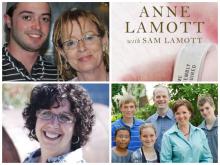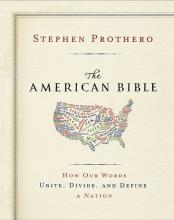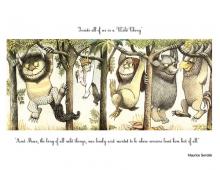Books
CHUCK COLLINS’ new book does exactly what an introduction to wealth inequality and all its faults needs to do: summarize without oversimplifying, and provoke dialogue and action about the urgent problem of what Collins memorably dubs the U.S.’s “inequality death spiral.”
Newcomers to the topic will find a concise overview of how wealth inequality has skyrocketed since 1980, how a small elite has changed the rules to enable still higher inequality, the many seen and unseen ways that’s a problem for us all, and the beginnings of a solution. Those more familiar with the subject can benefit from Collins’ overview, well-selected statistics, and well-honed, direct turns of phrase. Those who want deeper reading will find excellent footnotes at the end of the slim volume. Everyone will find her experience livened by the stark words Collins quotes from people identifying as part of the 99 percent—and those who are part of the 1 percent.
Collins’ many years as an advocate against inequality show in the book’s graceful balance: It emphasizes the usefulness of the 99 percent-vs.-1 percent idea, while also making clear that neither side is monolithic. He acknowledges very real economic, class, and racial divisions among the 99, but makes a compelling case against letting those differences be the basis of divide-and-conquer political strategies: “It is important that the 99 percent see that they have some important common ground, rather than be peeled into a hundred subgroupings.” And Collins, who himself grew up in the 1 percent, refuses to demonize it or to accept the demoralizing falsehood that it is unified against those below. Rather, he quotes multiple allies within the economic elite, while decrying how “a small segment of the 1 percent—with an organized base in Wall Street’s financial institutions—has worked over many decades to rig the rules of the economy” in the areas of “taxation, global trade, regulation, and public spending.”
AFRICAN-AMERICAN women’s wisdom emerges from an experience of triple (or more) oppression. Denied the dignity of womanhood, condemned for their skin color, whether too dark or too light, and often imprisoned by mis-education, demeaning and meaningless work, and a denial of their very humanity, African-American women have yet managed to forge a spirituality of hope and survival that has sustained them for centuries.
As Alice Walker noted, they dreamed dreams and had visions; they imagined a time and place when the pain and indignity of their lives would be transcended, not in some far-off heaven but right here in the future of their children and their children’s children. Somehow our foremothers persisted in their faith. They made rosaries out of beads and knotted string and learned scripture by rote memory. They resisted as best they could anything and anyone who attempted to keep them from living their faith on a daily basis.
Once freedom, so-called, came, they struggled, despite the callous disregard of their fellow Christians, to remain faithful. When their children were forbidden entry into diocesan or public schools, when they were required to sit in upper galleries and back pews, when they had to wait until last to partake of the sacraments, they did not suffer these indignities quietly but often walked out and with their meager resources built their own schools and church buildings.

Among my must reads are the Sunday New York Times Book Review and other book reviews I come across in various media outlets. There are too many books being published that I would love to read, but just don’t have the time. So, I rely on reading book reviews as one way of keeping in touch with what’s being written.
Here are my picks in this week’s books of interest.

Twenty years ago, author Anne Lamott was ambushed by her unexpected pregnancy. Her best selling 1993 memoir, Operating Instructions, describes her tumultuous first year as a single mother after her son Sam’s birth.
When Sam turned 19, he told his mom that he and girlfriend Amy were about to become parents, a life-altering event for the young couple. The news did some serious upending of Anne Lamott’s life as well. Anne and Sam together agreed to tell the story of the growing up that all three generations of Lamotts did during baby Jax’s first year.
As Anne Lamott notes in the book, Some Assembly Required: A Journal Of My Son’s First Son, “…I’d always looked forward with enthusiasm to becoming a grandmother someday, in, say, 10 years from now, perhaps after he had graduated from the art academy he attends in San Francisco and settled down into a career, and when I was old enough to be a grandmother.”
Not long ago, I had an opportunity to have a different sort of conversation about Some Assembly Required with God's Politics contributor Jennifer Grant, mother of four children between 10 and 16, and author of the new memoir Momumental: Adventures In The Messy Art of Raising A Family .
Who doesn’t love eavesdropping? Take a few moments to listen in as Grant and I chat about Some Assembly Required and a few of the lessons our own children and grandchildren are teaching us...

It often seems that just as we begin to get our heads around how we might understand our world, everything changes. There have been tipping points at various moments in history; events or advances which move us from one epoch to another in such a way that we can never see the world with the same eyes again. It happened during the Industrial Revolution; it happened with the Communications Revolution; and it happened on September 11, 2001.
And according to Ayesha and Parag Khanna, we are approaching (or indeed, have already reached) another of these defining moments—what they call “The Hybrid Age.” In their book, Hybrid Reality: Thriving in the Emerging Human-Technology Civilization, published as part of the TED Books series, they examine how we have reached this moment, and what that means for our futures, and for generations beyond our own.
Hybrid Reality, in a similar fashion to many of the e-books that have developed out of the popular series of talks, reads like a manifesto – and in this case, it is a manifesto for navigating the unknown, exciting, and at times, downright terrifying potential futures which we are opening ourselves up to as technology becomes more and more sophisticated and more and more a part of us.
Learn how to preach for social transformation with these excellent resources.
[view:media=block_1]
LaVonne Neff reviews The Red House by Mark Haddon, Drift by Rachel Maddow, The Beginner's Goodbye by Anne Tyler, and Some Assembly Required: A Journal of My Son's First Son by Anne Lamott with Sam Lamott.

Abraham Lincoln’s “Gettysburg Address” radically reinterpreted the Declaration of Independence.
The Rev. Martin Luther King Jr.’s “I Have a Dream” speech riffed on Lincoln’s lofty language.
And Ronald Reagan drafted King’s dream of a country where character outweighs color into an argument against affirmative action.
There are certain speeches, songs, books, letters, laws, and axioms that Americans appreciate enough to argue about, says religion scholar Stephen Prothero.
Like the Declaration of Independence, this almost consecrated canon inspires endless commentary about what it means to be American — and what “America” means.

Among my must reads are the Sunday New York Times Book Review and other book reviews I come across in various media outlets. There are too many books being published that I would love to read, but just don’t have the time. So, I rely on reading book reviews as one way of keeping in touch with what’s being written.
Here are my picks in this week’s books of interest.
SEEMINGLY OUT of nowhere, the newly founded conservative tea party delivered a stunning blow to Democrats in the November 2010 election, causing them to lose control of the U.S. House of Representatives. Just two years earlier, the 2008 election had severely weakened Republican forces with the election of the country’s first African-American president, Barack Obama, who won by promising change after eight years of the Bush administration.
Two recently published, fascinating books, The Tea Party and the Remaking of Republican Conservatism, by Harvard social policy experts Theda Skocpol and Vanessa Williamson, and Ayn Rand Nation, by award-winning financial journalist Gary Weiss, provide a treasure trove of careful research, new material, and balanced reporting that throws much-needed light on how the tea party was born and how it became a lightning rod for many frustrated Americans.
Who are the tea party members? They are, for the most part, middle-class white people over the age of 45, as the general media have already reported. But as one tea partier told the Harvard researchers, “We are not a bunch of uneducated, racist rednecks.” Her view is, in part, corroborated in the book. Skocpol and Williamson found through hundreds of interviews that the movement is indeed made up of many college-educated people (some graduates, some not) who live throughout the U.S. They are engineers, IT managers, small businesspeople, home contractors, and teachers. Although as a group they lost jobs, businesses, and retirement money in the recent recession, they were not hit nearly as hard, report the Harvard researchers, as those with lower incomes.
What brought out tea party rage? One source was an unlikely populist crusader, CNBC financial broadcaster Rick Santelli, who suddenly began ranting on the air on Feb. 19, 2009, that “the government is rewarding bad behavior” by subsidizing those about to lose their homes through President Obama’s home foreclosure relief plan. His rant was picked up by the Drudge Report and then rebroadcast through the major media.
God and the Godforsaken
Rafael Luévano, a Catholic priest and professor, writes a moving narrative theology of suffering—based on extensive field research—in Woman-Killing in Juárez: Theodicy at the Border. A powerful blend of reporting, analysis, and poetic theological meditation. Orbis
Searching Harmonies
Veteran songwriter, producer, and musician Phil Madeira pulls together an all-star lineup including The Civil Wars, The Carolina Chocolate Drops, Mat Kearney, and Emmylou Harris for the alt-roots album Mercyland: Hymns for the Rest of Us—nondoctrinal music that yearns for a God who is love. Mercyland Records

Among my must reads are the Sunday New York Times Book Review and other book reviews I come across in various media outlets. There are too many books being published that I would love to read, but just don’t have the time. So, I rely on reading book reviews as one way of keeping in touch with what’s being written.
Here are my picks in this week’s books of interest.

Among my must reads are the Sunday New York Times Book Review and other book reviews I come across in various media outlets. There are too many books being published that I would love to read, but just don’t have the time. So, I rely on reading book reviews as one way of keeping in touch with what’s being written.
Here are my picks in this week’s books of interest.

Among my must reads are the Sunday New York Times Book Review and other book reviews I come across in various media outlets. There are too many books being published that I would love to read, but just don’t have the time. So, I rely on reading book reviews as one way of keeping in touch with what’s being written.
Here are my picks in this week’s books of interest.
WITHOUT SOME advance warning, you might not know that Jeff Sharlet is a man of God. That’s not an insult or backward compliment so much as it is fact. Though perhaps best known for his acclaimed nonfiction expose The Family: The Secret Fundamentalism at the Heart of American Power, Sharlet doesn’t beat readers over the head with the proverbial Bible he carries in his knapsack. If you don’t know what clues to look for—tales of Germans born again in Oklahoma, descriptions of hipster trucker caps emblazoned with flashy youth crusade logos—you might miss some of his most powerful nods to spiritual and religious influence in his travels. You might mistake the nondenominational journalist for just another fantastically gifted storyteller, a shrewd correspondent reporting back from remote spiritual enclaves, rather than a disciple of God seeking to understand those with whom he shares some belief.
Sweet Heaven When I Die begins by tracing Sharlet’s youthful days visiting a girlfriend’s Colorado ranch and his grandmother’s Knoxville home. His keen sense of personal history first grounds his essays in what is clearly important in his own life: the closeness of loved ones, the nearness of God. But he quickly moves beyond situating himself in his writing and instead steps back to peer like a prophet into the lives of others—philosopher and educator Cornel West or Yiddish novelist Chava Rosenfarb.
Sharlet also nimbly passes through the outer realms of faith and lack thereof. In one of the book’s most poignant vignettes, he retraces the short life of Brad Will, once called one of the country’s “leading anarchists.” (The oxymoronic label suitably amused Will.) Will’s activism began in a same-sex marriage standoff with Promise Keepers in Boulder, Colorado, and then carried him north to Quebec City and south to his 2006 death in Oaxaca de Juarez. Throughout his fiery life, he kept in close contact with his straight-laced Republican family; attending his mother’s 60th birthday party celebration was a chief concern when he was detained for a week following the 1999 WTO protests in Seattle.

Among my must reads are the Sunday New York Times Book Review and other book reviews I come across in various media outlets. There are too many books being published that I would love to read, but just don’t have the time. So, I rely on reading book reviews as one way of keeping in touch with what’s being written.
Here are my picks in this week’s books of interest:
The Cause
By Eric Alterman and Kevin Mattson, Reviewed by Jeff Shesol
Power and Constraint: The Accountable Presidency after 9/11
By Jack Goldsmith
Democracy’s Blameless Leaders: From Dresden to Abu Ghraib, How Leaders Evade Accountability for Abuse, Atrocity, and Killing
By Neil James Mitchell

Among my must reads are the Sunday New York Times Book Review and other book reviews I come across in various media outlets. There are too many books being published that I would love to read, but just don’t have the time. So, I rely on reading book reviews as one way of keeping in touch with what’s being written.

Among my must reads are the Sunday New York Times Book Review and other book reviews I come across in various media outlets. There are too many books being published that I would love to read, but just don’t have the time. So, I rely on reading book reviews as one way of keeping in touch with what’s being written.
Here are my picks in this week’s books of interest.

“But the wild things cried, “Oh please don’t go - we’ll eat you up - we love you so!”
And Max said, “No!”
The wild things roared their terrible roars and gnashed their terrible teeth and rolled their terrible eyes and showed their terrible claws, but Max stepped into his private boat and waved goodbye.”
~ Maurice Sendak
Maurice Sendak, the author and illustrator of unmatched and unfettered whimsy, whose fertile imagination gave children (of all ages) Where the Wild Things Are, In the Night Kitchen, Pierre and most recently Bumble-Ardy, died today in Connecticut. He was 83.